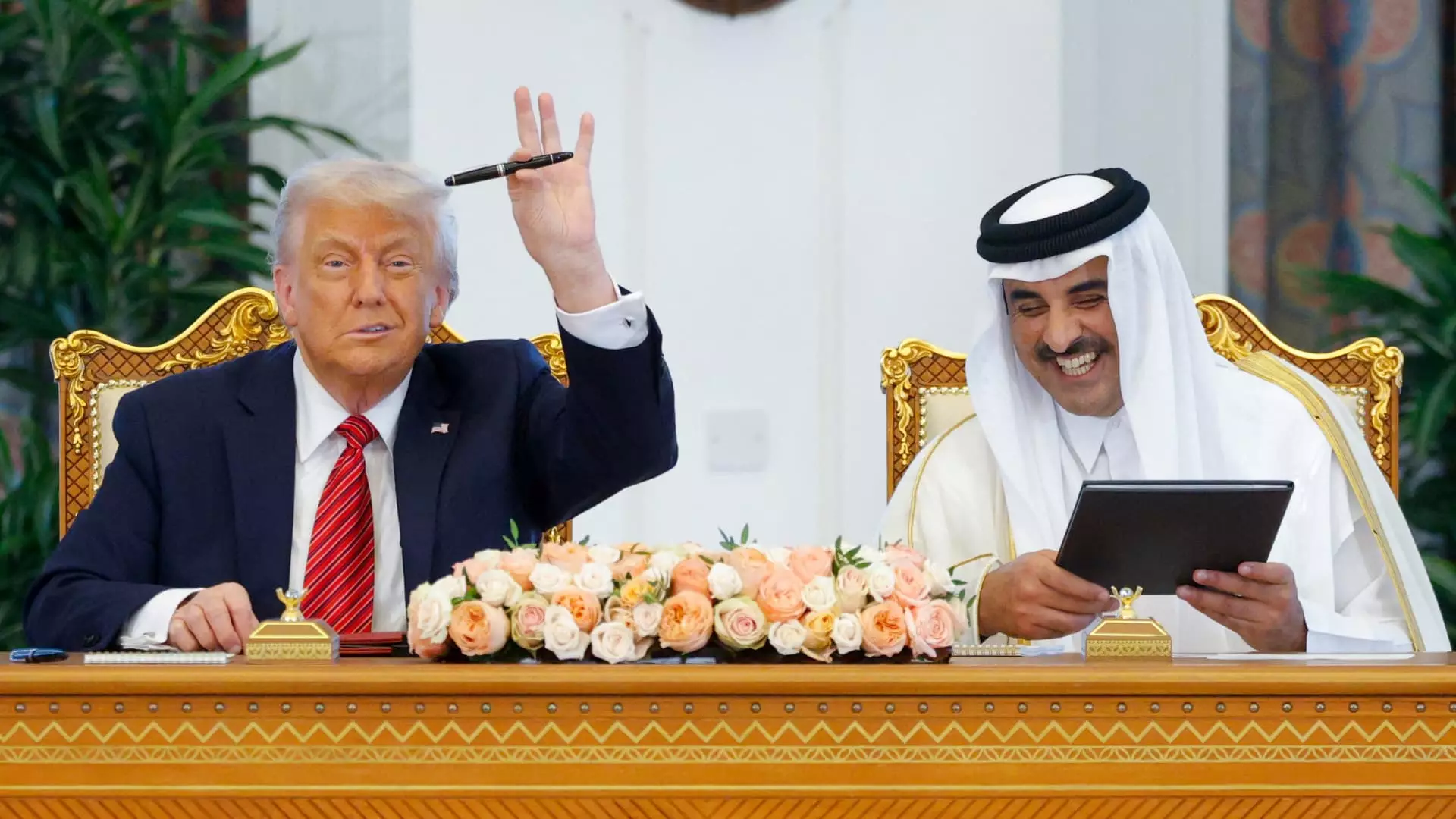The recent assertion from Qatar’s Prime Minister, Sheikh Mohammed bin Abdulrahman al-Thani, regarding the nation’s alleged generosity toward U.S. President Donald Trump raises essential questions about the ethics and integrity of modern diplomacy. At the heart of this controversy lies the proposed offer of a multi-million-dollar Boeing 747 jet which has been characterized as a mere “exchange between two countries.” However, one must wonder: can a gesture of such magnitude really avoid implications of influence peddling?
This exchange, cloaked in transparency and legality as the Prime Minister claims, operates on a delicate and often murky boundary that defines modern diplomatic relationships. Such an offer, particularly from a country like Qatar—known for its wealth and strategic significance—raises eyebrows and stirs skepticism. The timing coinciding with Trump’s Gulf tour further complicates this narrative. Indeed, is it mere coincidence, or is there an undercurrent of transactional politics that churns below the surface?
Underlying Motivations and Public Perception
Al-Thani’s insistence that no “under the table” dealings exist does little to alleviate concerns voiced by critics, especially considering the opposition from both sides of the aisle in U.S. politics. The juxtaposition of such a grand gift against the backdrop of America’s legislative stipulations concerning foreign emoluments is jarring. The Foreign Emoluments Clause of the U.S. Constitution explicitly warns against accepting gifts from foreign entities without Congressional consent—making attempts to circumvent such a law not merely a legal quagmire but a moral failing as well.
As pointed out by Democratic politicians like Rep. Jamie Raskin, this situation represents a vivid example of the potential for corruption at the highest levels of government. To accept a private jet worth an estimated $400 million could easily lead to accusations that the presidency is being sold, turning a revered position into a marketplace for foreign interests. The vehemence with which Democrats have reacted underscores an alarm over Trump’s inclination to treat the presidency as a transactional enterprise—a troubling sign for observers who value ethical governance.
Compromising Ethics for Alliances
The assertion from the Qatari side—that such gifts are commonplace and that this is not an attempt to “buy influence”—betrays a more profound malaise in our understanding of political alliances. Sure, nations have long made concessions and gestures to solidify relationships, but the scale and implications of this specific transaction may mark a different territory. What happens when such gestures overshadow national security, ethical considerations, or the constitutional mandate designed to curtail foreign interference?
Moreover, Trump’s reaction on social media adds layers to this already volatile situation. His mention of the jet as a “temporary” replacement for the aging Air Force One reads almost like a satirical take on the transaction, as if to downplay its significance. However, this is anything but trivial. In the era of rampant misinformation and alternative facts, the rhetoric that surrounds such exchanges can easily be weaponized. An offer that may have once been couched in the spirit of friendship now teeters on the brink of perceived moral compromise.
An Imbalance of Power and Responsibility
The swelling tide of criticism is justified, raising hard questions about who holds power and who ultimately benefits from such treaties cloaked in benevolence. Al-Thani’s remarks about gifts between allies masquerade an uncomfortable truth: in international relations, the scales of power are rarely balanced. There is an implicit understanding that when a small, wealthy nation extends grand offerings to a superpower, the implications might extend beyond mere camaraderie.
As the situation evolves, one has to ponder not just the legality of this quirky diplomatic maneuver but also its broader implications for the U.S.’s international standing. Allowing such gifts could embolden other nations to mimic Qatar’s example, making exchanges devoid of their true meaning and purpose—cooperation for mutual survival against many global challenges.
In the end, the next steps taken by Congress in addressing this complex issue will likely set a precedent. Will lawmakers fortify ethical boundaries or allow for a new era in which the office of the presidency can be further diluted in ethical ambiguity?

